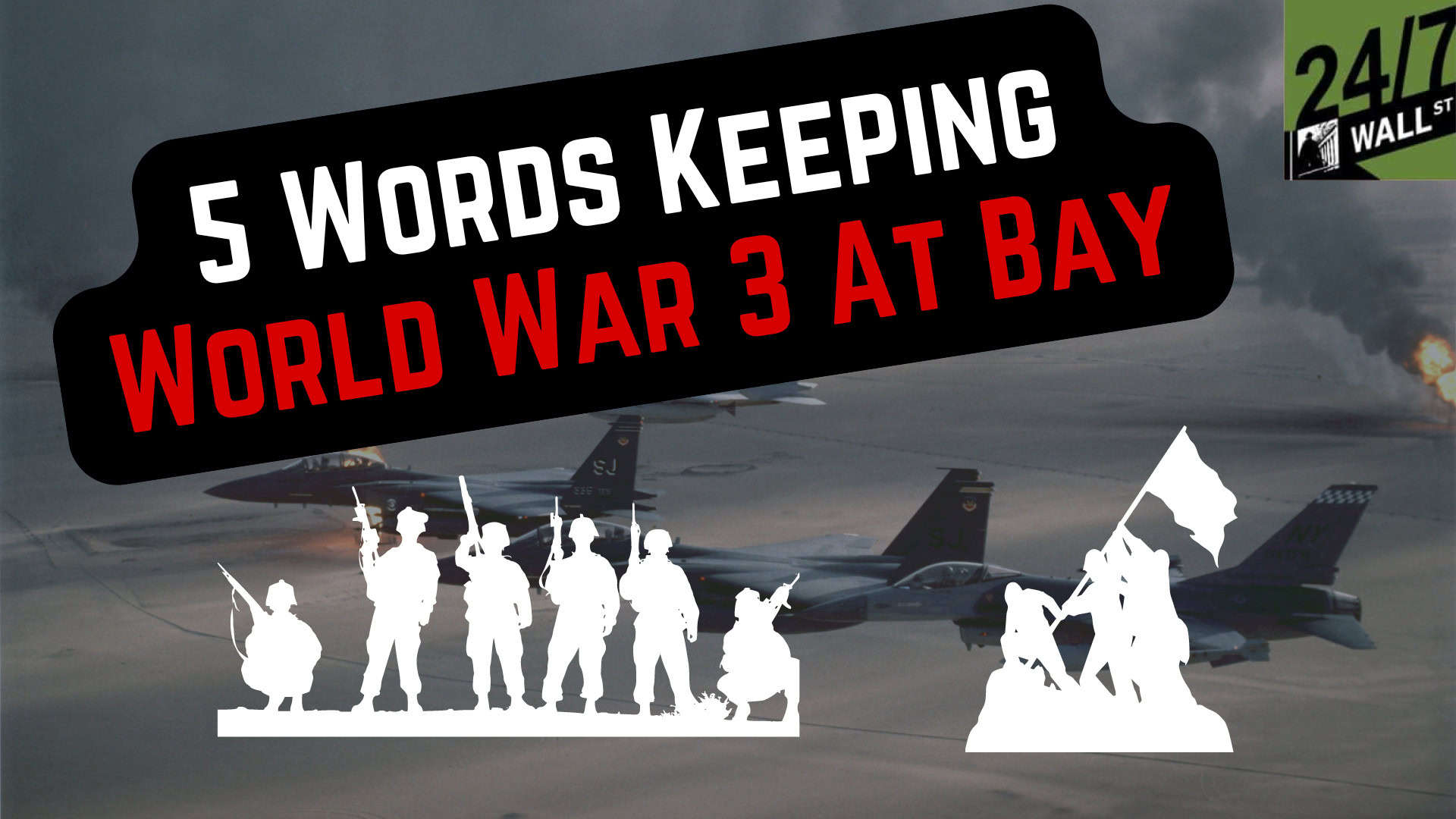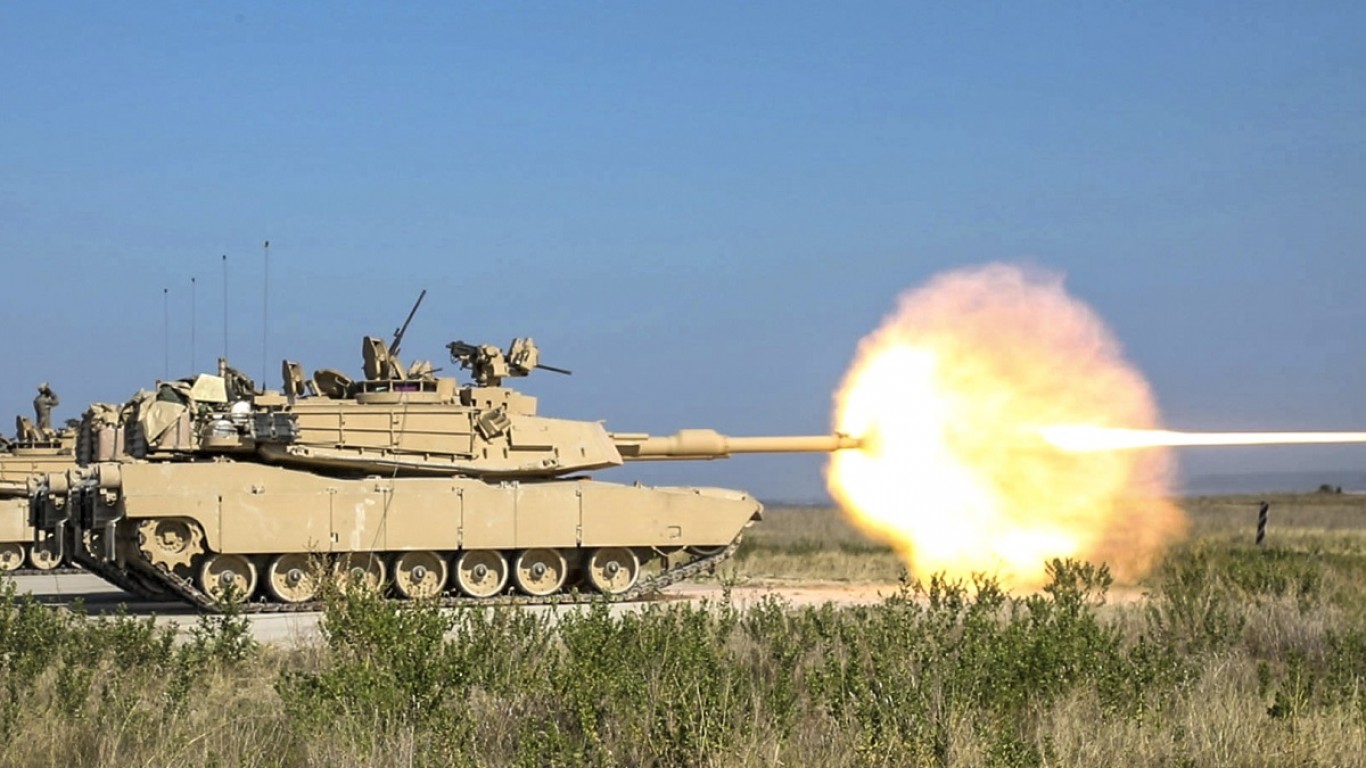
This post may contain links from our sponsors and affiliates, and Flywheel Publishing may receive
compensation for actions taken through them.
compensation for actions taken through them.
Key Points:
- Nuclear deterrence and alliances like NATO help prevent major wars.
- U.S. influence and organizations like the UN promote global peace.
- Modern conflicts are shifting toward tech, AI, and cybersecurity rather than traditional warfare.
- Also: Start here to retire rich!
Watch the Video
Edited Video Transcript:
Hello, my name is Austin Smith and I’m joined by Michael Neuer, our defense and military expert at twenty four seven wallstreet.com.
Michael, good to see you again.
We have a full docket today.
The last time we spoke, we spent a little bit of time looking in the past, looking at the Pacific theater and some of the tensions and dynamics there and some of the various capabilities that China and Taiwan could bring to a conflict.
I’d like to extend that a little bit more, just future looking.
And ask you, do we find ourselves at the end of traditional war?
We’re at this sort of precipice where it feels like AI and autonomy and cyber security and cyber warfare are the new norm.
And I’m wondering, does that mean we are at the end of traditional war or are we augmenting traditional war at that era of kinetic power and boots on the ground and artillery and missiles that we sort of come to associate with war?
What’s going on?
Where are we?
Sure.
I mean, it’s a really interesting question, and I don’t want to get too bogged down in the semantics of defining traditional war, but I think it’s really important that we just begin with having a working definition before going forward.
So when we say traditional war, there’s different ways you can interpret that.
But if we think about it as symmetric war, the idea of two powers or two groups of alliances of similar power going toe to toe, then we haven’t really seen an awful lot of that in recent years.
So this idea of symmetric war would be best characterized by World War II, World War I, Franco-Prussian War, the Napoleonic Wars, if you want to go a little further back.
And the reason we want to look at why haven’t we seen a World War III, if you will, and there are several good reasons for that.
Of course, the big one, I think, and probably the main reason if we were just going to attribute one,
One reason for the lack of a World War III, thankfully, is what nuclear strategists call the delicate balance of terror.
The advent of nuclear weapons removed any and all logic from warfare, if there ever was in the first place.
You know, the capabilities we have now just essentially rule out the idea that any rational thinking person would ever actually want to begin a war like that.
But there’s other reasons too.
you know, this idea of the United States as a stabilizing force.
You know, there’s a lot of times we see the most powerful entity on the planet ensuring peace.
It’s like the Pax, in this case, the Pax Americana.
Before that, you know, the Pax Britannia or the Pax Romana, just this idea that the global military hegemon having a stabilizing influence and facilitating trade.
So for example, you know, the US Navy largely facilitates global trade in the same way that the Royal Navy did a couple hundred years ago.
We also see the rise of global organizations.
You know, the UN, for all its criticisms, I think has been broadly successful in averting a major global war.
Prior to that, after World War One, for example, we had the League of Nations, which is often seen as a failure.
Of course, it did ultimately lead to World War Two.
But what a lot of people overlook is actually in the initial years, the League of Nations was actually quite successful in easing global tensions.
But the biggest problem there, of course, was the United States didn’t participate in the league.
Additionally, we have other organizations that have helped guarantee the peace.
I think one of the most important is the European Union.
Today, the idea of France and Germany going to war seems preposterous.
But for most of their shared history, they were at odds.
And just this really fully interdependence and trade and commerce.
And the EU has been a very stabilizing force.
for world peace
um at least in the sense that you know a major symmetric war
of course you know there are lots of asymmetric wars which we’ll get to in just a second
um and then the creation of very powerful
uh blocks of nations too
um can have a deterrent effect
you know nato
again it’s had a lot of criticism
but I think in its
It has been a remarkably enduring and successful alliance.
And again, no same nation would attack a member of NATO because that is certain destruction.
So all these kind of stabilizing forces have contributed to a lack of what we might call traditional warfare.
So let’s just pause there because there’s a couple of forces and I want to make sure that that we’re able to distill them down.
So the one thing you said, you know, there’s the delicate balance of terror, you know, the five words that might be keeping, you know, the World War Three at bay, so to speak, or sort of that that balance is preventing a greater outbreak.
And the hegemony of the United States, Pax Americana military, coupled with stabilizing forces of the UN, the EU, NATO, and let’s just say other partner nation states.
Yes, absolutely.
So you have a global superpower with then international organizations acting as a stabilizing function between countries, critically important to us not entering World War III.
Get Ready To Retire (Sponsored)
Start by taking a quick retirement quiz from SmartAsset that will match you with up to 3 financial advisors that serve your area and beyond in 5 minutes, or less.
Each advisor has been vetted by SmartAsset and is held to a fiduciary standard to act in your best interests.
Here’s how it works:
1. Answer SmartAsset advisor match quiz
2. Review your pre-screened matches at your leisure. Check out the advisors’ profiles.
3. Speak with advisors at no cost to you. Have an introductory call on the phone or introduction in person and choose whom to work with in the future
Thank you for reading! Have some feedback for us?
Contact the 24/7 Wall St. editorial team.




